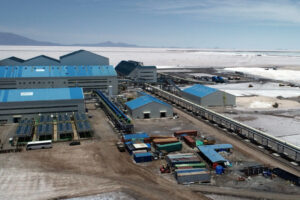The recent cocaine precursor seizure at Chile’s Arica port highlights the region’s growing role in the Bolivian drug trade. On November 5, Chilean authorities seized 43 metric tons of sodium carbonate, a chemical used in cocaine production. The shipment, falsely declared as “tile adhesive,” was headed to landlocked Bolivia, revealing the port’s increasing importance in global trafficking.
The sodium carbonate shipment was intercepted after being misrepresented by a Chilean-Bolivian transport company. Authorities are now investigating the consignee and logistics operator linked to a Bolivian company. This seizure points to the growing sophistication of international drug trafficking operations using deceptive methods to evade detection.
Prosecutor Mario Carrera called the seizure one of Chile’s largest, citing the potential amount of cocaine that could have been produced. Carrera emphasized the significant economic value of the drugs that could have entered the market, underscoring the scale of the operation and the need for robust enforcement.
Sodium carbonate, widely used in manufacturing and cleaning products, is also critical in cocaine production. In drug labs, it helps extract the cocaine alkaloid from coca leaves, making it a key component in illicit cocaine processing. This dual-use chemical complicates enforcement efforts.
This bust highlights the complex global cocaine supply chain. Bolivia’s central role in coca cultivation, combined with Arica’s role as a trafficking hub, emphasizes the need for international cooperation. The seizure underscores the importance of safeguarding legitimate trade routes from exploitation by criminal networks.










